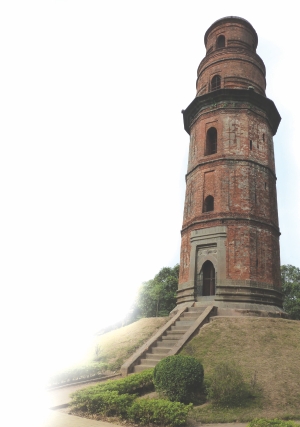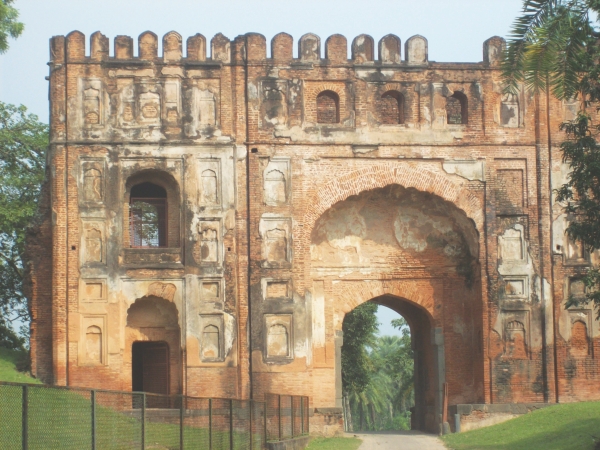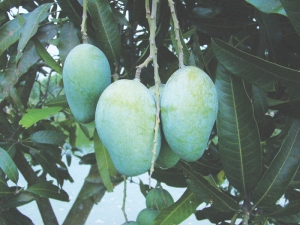| Home - Back Issues - The Team - Contact Us |
 |
| Volume 11 |Issue 36| September 14, 2012 | |
|
|
Reflections The Box of Mangoes Andrew Eagle
Now, it's probably not something to fuss about. But if promises are meant to be kept, so it's true: India owes me one box of mangoes. Now, I suppose I am not suggesting 'India' in the sense that Sonia or Manmohan or even one Ms. Banerjee of Kolkata are, or should be, struggling with their consciences over said outstanding box. India is a big country with any number of issues upon the table and it's reasonable to conclude that a minor mango debt is not of larger concern. No, when I write 'India', I refer more precisely to the promisor, a one Mr Nurul Islam from Malda Town. But it's not nice to harp on about unpaid debts. I like Malda Town. It's distant enough from Kolkata to make a worthwhile journey break en route to the Himalayas and it's neither too small nor large a town to be burdensome. With the main sites 16 kilometres to the south in Gaur, some kind of transport is required, and as the morning train arrives at the Malda platform there would usually be a handful of rickshaw drivers waiting to oblige. Gaur was the capital of the Pala and Sena dynasties from the 7th to 12th centuries, although the ruins date from a later period, mostly the 13th to 16th centuries. As the ruins are scattered about the greenery of rural Paschimbanga, a leisurely rickshaw tour is wise. Now, in everybody's life there are instances when something pledged was never delivered despite intentions. A box of mangoes is a small thing. The essence of success in a tour of Gaur is in the character of the chosen rickshaw driver. Ideally the driver should not take short cuts or stretch out the bargaining process.
It wasn't immediately that we found Mr Nurul Islam. The drivers at the station seemed eager to turn a quick profit, so my friend Situ and I chose none and went instead to find lodgings. After a good hour we stopped for tea, ironically back at the train station, and from the original flurry of drivers there remained just one. He sat near us as we drank. Patiently he waited until the negotiation commenced, and I bargained hard, less because of the price, more to know him better. He seemed alright. So it was that we three sealed a deal over a pre-departure cup of tea. We worked our way out of town until we reached the highway. It's not easy, a rickshaw on a highway with overloaded Tata trucks bowling along at ungodly speeds. They really need that extra pair of eyes painted onto the side fenders. But closer to the ruins the roads are quiet.
Along the way it was common to pass other rickshaws and the drivers on seeing Mr Islam had a foreigner on board were calling out, 'how much?' It'd surprise me if in Malda-Mango rickshaw circles there weren't big fish tales of what foreigners had paid. Our Mr Islam replied, 'I'm taking them for free.' I liked him already. Now, it's not because of the mango debt I stopped speaking of Malda. I quit the chat of Mango Town from the risk of the narration sounding too self-congratulatory. It was never the point. But now, risk in tow I've changed my mind, for the events of that day should be shared in just the way Mr. Islam offered the box of mangoes.
Meanwhile to the east, the zigzag of the black fence had come into view. On the other side was Bangladesh. Close enough to the border, the ruins of Gaur spill onto the other side. I could describe the ruins but half of the Gaur experience is in the ease of the paddies and mango trees. There is, however, one specific site to mention, the Qadam Rasul Mosque, which is said to house the footprint of the Prophet Mohammed, peace be upon him. Most of the ruins are fairly open but at that mosque there's a gatekeeper with keys to unlock the padlock to let the tourists enter. He wanted baksheesh but he seemed a bit self-appointed; yet Mr. Islam, I saw him, from a fold in his lungee pushed a few rupees into the padlock unlocker's hand. Now, the details of the mango promise were never finalised. What variety he had in mind I couldn't say. Perhaps they would've been fazlis?
By early afternoon we'd finished our tour and asked Mr. Islam to take us to a decent restaurant. He chose a truck stop diner. After lunch I don't know, I thought I wanted to buy one Mr. Nurul Islam a new shirt. It's not the sort of thing I'm great at doing. We asked him to take us to the best clothes shop. We set off, without Mr. Nurul Islam having the slightest inkling of the substance of the plan. It was an ordinary shop he chose. We removed our shoes and sat on small stools as the shop attendants fussed about pulling shirt possibilities from plastic packets. I didn't know how to unveil the surprise. At first I asked Mr. Islam which shirt he thought would look nice. He was agreeable to all. Then I put one shirt, a plain brown one against him to check its size; and said I wanted to buy it for him. Now, suppose if it'd been a box of a decent size, the fazli delight might've lasted a week. Of the shirt Mr. Islam protested. 'No, no, I can't,' he said; through Situ I made him understand it was okay, not to worry. But by this time his eyes had the first signs of dampness about them. We agreed on the brown shirt, in part because in front of the shop assistants it was all rather embarrassing. Our tour completed, we asked Mr. Islam to take us back to the station and on the way with Situ's help I made him promise not to tell the other rickshaw drivers. It's important to think of the tourists who'll come later. Mr. Islam promised not to say anything; but his mind was focused on his family. 'My sister-in-law,' he sobbed slightly, 'she'll say I cheated you for this shirt. But I didn't, I didn't.' When he pulled up he couldn't hold it. Our Mr. Islam burst into full-blown tears with his hands about his face. 'It is Debota's work you do,' he sobbed. I knew those tears. Those are the tears of someone bothering: not family, not friend and not for any reason. By that stage my eyes were watery too. Well he'd de facto blown his promise, our Mr. Islam, for his wailing had drawn the attention of other rickshaw drivers who rushed over to see what made him cry. I thought we should leave in case they misunderstood and started to hit us. I pushed the payment, a little extra, a little fairer, into his hand. He didn't look to see the amount. He didn't look. I suppose that's what in Bengal honest people do. 'You come in mango season,' he said, 'I'll give a whole box of mangoes.' But he still had a broken sandal.
|
||||||||||||
|



